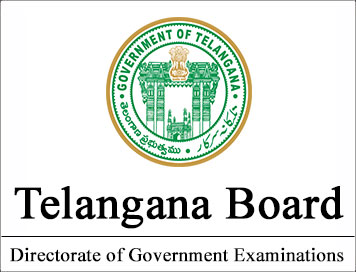Telangana State Board CLASS-12 Syllabus - Sociology
Disclaimer: This website is NOT associated with CBSE, for official website of CBSE visit - www.cbse.gov.in
(Download) Telangana Board Exam CLASS-12 Syllabus
Exam Name : Telangana Board Exam CLASS-12 Syllabus
Subject : Sociology
Year : 2010-11
INTERMEDIATE SECOND YEAR
w.e.f. 2010-11
Subject: SOCIOLOGY Paper-II
SOCIETY IN INDIA: Structure and problems.
Objectives: To Revise the syllabus and to acquaint the student with the emerging social problems;
To adopt the CBSE sociology syllabus with suitable modifications to suit the local and Regional needs;
To impart and inculcate the requisite social skills for enhancing employability of the students in the areas of social, Human Resource Development and poverty alleviation Developmental programmes and NGO Sector; and to inculcate civic awareness and spirit of civic responsibility.
Syllabus
Unit-I Social structure of Indian Society:
Social values and Ethos of Traditional Indian Society – Purushardhas, Ashrama
Dharmas; Caste system – Definition, Characteristics, Changing trends; Land – Land
ownership patterns, Caste & Social relations, land reforms, changing trends of land
ownership and Agrarian relationships; Rural – Urban devide – Emerging urban scenario
and panchayat Raj.
Unit-II Unity in Diversity:
Diversities in the Indian Society – Linguistic diversities; Religious & Ethnic
diversities; and Demographic & Geographical diversities. Unity in Diversity – Nature,
Reasons, threats & Risilence.
Unit-III The disadvantaged groups in India:
The nature of Social inequalities – The disadvantaged groups – S.C, S.T., OBC
Minorities & Women – The nature of disadvantage, problems of disadvantages,
measures to eliminate disadvantage.
Unit-IV Social Problems
Meaning, definition, nature & types of social problems; Social disorganization;
Meaning & nature types, causes; Crime: Meaning, types and causes; Juvenile
delinquency – meaning and causes; Liberalization, Privatization and Globalization (LPG)
and emerging nature of Social problems; employment insecurity, suicides, competition.
Unit-V Contemporary Social problems in India:
Development programmes & problems of displacement & Rehabilitation;
Development and Environmental degradation, Consequences of Environmental
degradation, Environmental protection, Social Legislations; Women Empowerment –
Status of Women, problems of Women, the need for women empowerment, measures
to attain women empowerment; Demographic problems – The problem of over
population, the problems of public health – HIV, AIDS, communicable diseases, mother
& child health care.
Unit-VI Social Policy & Programmes
Social Policies addressing social issues in India – Five year plans, Economic
programme and social programmes. Social legislations addressing social problems –
Untouchability Act, Age at Marriage Act, Dowry prohibition Act, Child labour Act,
Abolition of Bonded labour.
Unit-VII Social Skills for Intervention
Community Development & Community organization – Meaning, need for
Community development, Basic Principles of Community organization, Forming a group
& conducting meetings. Basic principles of participatory methods for community
planning and action; Elements of extension methods and counseling, Social audit.
Unit-VIII Civic awareness & Civic responsibility
Meaning and need for civic awareness & civic responsibility, Fundamental Rights
and duties; Rights of S.C, S.T., Minorities, Women & Children; Problems of Right and
Duties.
Note: Wherever possible the student may be given exposer to empirical realities by
field visits and same may be included in the instruction and the student may be
encouraged to present case studies of his experience.
Reference Books:
1. Hindu Social organization by H. N. Prabhu
2. Indian Social Problem by G.R. Madan
3. Indian Social Problem by C.B. Memoria
4. Equalities & Inequalities by Andre Beitle
5. Major Social Problem by Earl Roab
6. Social change by Kuppu Swamy
7. Status of Women in India by Veena Desai
8. Indian Society and its problems by Ram Ahuja
9. Caste Dynamics in India by C. Lakshmanna
10. Competing inequalities by Marc Galenter
Click Here to Download
Courtesy: Telangana Board
